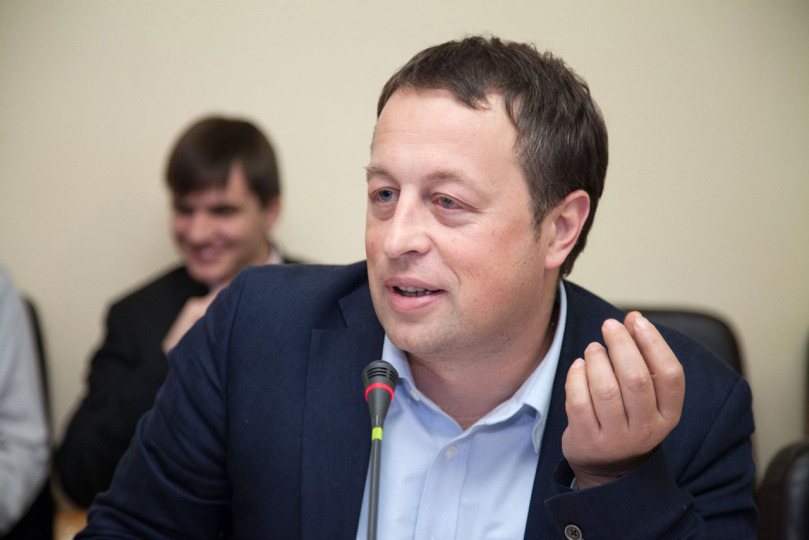International Staff Week 2015 Begins in St. Petersburg
On June 8, the Higher School of Economics in St. Petersburg began celebrating International Staff Week, a weeklong series of events designed as an opportunity for international staff members to promote their universities and develop opportunities for international cooperation.
Communications and Life
Teachers from the HSE Faculty of Communications, Media and Design spoke at the annual International Association of Communications Conference, Communication Across the Life Span.

Konstantin Sonin Takes up Professorship at Chicago University
HSE Professor Konstantin Sonin has accepted an invitation from Chicago University to serve as a Professor in its Harris Graduate School of Public Policy Studies. Chicago University is one of the world’s top 10 academic institutions, and the Harris School is one of the United States’ top 5 analytical centers on public policy.
HSE International Laboratories Celebrate 5 Year Anniversary
It is five years since the HSE began setting up international laboratories. HSE’s Deputy Vice-Rector, Marina Litvintseva, Head of Laboratory for Algebraic Geometry, Fedor Bogomolov, and Ronald Inglehart and Eduard Ponarin from HSE Laboratory for Comparative Social Research reflect on the results of the work conducted last year and on the achievements of the laboratories.
Political Scientist with Freedom of Choice
On 8th May Andrei Melville, Dean of the Faculty of Social Sciences celebrates his 65th birthday.
Evgeny Yasin is 81
On May 7th 2015 HSE’s Academic Supervisor Evgeny Yasin celebrated his 81st birthday. There’s hardly a soul in HSE who needs to be told just how much Professor Yasin has done for the university. He isn’t only the initiator of research at HSE. It is thanks to him, and some like-minded people, that the university actually came to life. What began as a university for graduates, has rapidly, and uniquely, become one of the top universities in the country.
Fields Laureate Andrey Okounkov on Where to Study Math
Columbus University Professor Andrey Okounkov is the Academic Supervisor of HSE’s International Laboratory of Representation Theory and Mathematical Physics. In an interview with Afisha, he discusses how mathematics education differs in Russia and the U.S., where his insight comes from, and whether it is true that mathematicians are in fact ‘strange individuals.’
The Faculty of Humanities: Liberal Arts United
The 20th issue of The HSE Look is devoted to the Faculty of Humanities, another big department formed in the course of the university-wide structural reorganization, launched at HSE in December 2014. We talked to the Dean of the Faculty of Humanities, Professor Alexey Rutkevich. He discussed the new opportunities and challenges connected with the foundation of this large faculty and the general situation concerning liberal arts education in Russia.
Is Increased Democratization Domestically Linked to Improved Government Performance in Eastern Europe after the Cold War?
Thomas J. Volgy, Professor at the School of Government and Public Policy, University of Arizona USA and Executive Director of the International Studies Association is a political scientist specialising in international politics, democratic processes and domestic public policy. At the XV International April Conference this year Professor Volgy will be delivering two papers, one on his own and one with two fellow academics. We asked him to tell the English News service more about them and about his work with HSE.
Oxford Professor Visits HSE in Saint Petersburg
At the invitation of the Laboratory of Sociology in Education and Science, renowned sociologist and statistician Tom Snijders is visiting HSE St. Petersburg on March 9-12. Dr. Snijders is a Professor at Oxford University (Great Britain), an emeritus fellow of Nuffield College, and a Professor at the University of Groningen (Netherlands).


Deadline for applications to present academic reports - January 20, 2025